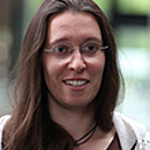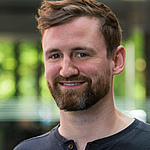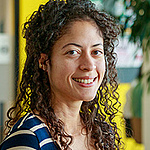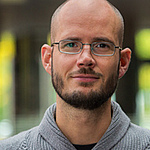Senior Scientists
The iDiv Senior Scientist Programme aims to promote career paths for outstanding experienced researchers at iDiv, to make iDiv attractive for talented and highly-qualified scientists, and to advance iDiv’s integrative biodiversity research, among others, by establishing senior scientists as productive links between the core and member groups.
Current Senior Scientists at iDiv
Dr Susanne Dunker
Phone: +49 341 9733170
Email: susanne.dunker@idiv.de
Research project summary
Hidden biodiversity monitoring across time and space, complexity levels and disciplines
Thanks to iDiv funding, I established the integrated Cytomics support platform iCyt, which directly supports the missions of iDiv, and the research I lead and collaborate on contributes to all iDiv research areas (RA’s Change, Complexity, Functioning, Molecular, and Society). I became a working group leader in 2019, currently directly supervising 1 TA, 2 PhD students and 1 Postdoc. During my time at iDiv, I developed an innovative, highly interdisciplinary and worldwide unique approach of multispectral imaging flow cytometry. This high-throughput approach, in combination with AI-based deep-learning methods is now a powerful tool for microscopic biodiversity research and environmental monitoring of many applications (Dunker et al. In minor revision): e.g. air and water quality assessment; plant-pollinator studies; ice nucleating and fossil particles supporting climate research; biotechnological process control; and environmental pollution. The method enables high throughput in a new dimension to overcome methodological limitations and to finally perform biodiversity monitoring across time and space, complexity levels and disciplines.
Research project summary
A Research Agenda advancing Understanding of Social-Ecological Causes of Biodiversity Change and an iDiv Data Platform for studying Change Drivers
As Senior Scientist, I will enrich integrative biodiversity research at iDiv in two main ways. First, new collaborations and projects integrating between different iDiv research areas will benefit from a new iDiv platform, tentatively called iDriver, that we developed and that facilitates access to global quality-assured and fit for- purpose data on multiple drivers of biodiversity and biodiversity change. Second, as an iDiv Fellow, I will pursue an integrative research agenda at the interface of the ‘Change’ and ‘Society’ research areas, addressing direct and indirect causes of global biodiversity change, with a special emphasis on interacting climate, land-use, and economic processes.
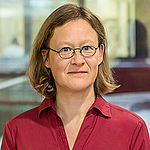
Dr Nadja Rüger
Phone: +49 341 9733168
Email: nadja.rueger@idiv.de
Research project summary
Forests in the anthropocene – Understanding and optimizing human impacts on forest biodiversity in the face of global change
Forests provide vital goods and services to society and more than half of the world’s forests are managed. Thus, human impacts on forests are pivotal for understanding forest biodiversity change. So far, we are lacking scientific tools that guide the management of mixed-species forests for multiple objectives, including biodiversity conservation, climate-resilience, and carbon storage, while at the same time accounting for novel challenges posed by global change. I propose to improve our predictive understanding of managed mixed-species forests by incorporating management in a mechanistic forest model that combines ecological realism with analytical tractability and straightforward parameterization. I will apply the management-enhanced model to three case studies at local, national, and international scales and with different management objectives to derive guidelines for optimal management. The proposed integrative approach will be a major step towards a better understanding of forest biodiversity change under human influence and connects the iDiv research areas Change, Complexity, Functioning, and Society.
Dr Chloé Schmidt
Phone: +49 341 9739148
Email: chloe.schmidt@idiv.de
Research project summary
Linking microevolutionary processes to broader biodiversity patterns at species, community, and ecosystem levels
Connecting macroecological and macroevolutionary patterns to micro-scale processes is necessary to achieve a cohesive understanding of the mechanisms that produce and maintain biodiversity. The broad aim of my research is to determine general rules governing the evolution of biodiversity by linking population genetic processes to the spatial distribution of biodiversity across species, community, and ecosystem levels. Without this knowledge, our ability to identify, mitigate, and reverse the factors that reduce biological diversity and ecosystem resilience is limited. We are increasingly recognizing the central importance of intraspecific diversity for understanding the ecological and evolutionary forces that shape biodiversity and for improving the predictability of biological responses to environmental change for conservation applications. I am particularly interested in exploring broad-scale patterns of genetic diversity and their interactions with urbanization, one of the most rapidly expanding land-use types. These questions integrate four core research areas at iDiv: change, complexity, molecular biodiversity, and society.
Dr Roel van Klink
Phone: +49 341 9733255
Email: roel.klink@idiv.de
Research project summary
Connecting the dots: Towards understanding insect biodiversity change from local to global scales
In recent years, the changes in insect biodiversity have gathered political and media attention, but countering the common public perception, my research has shown that the patterns of change are variable in space and time, as are the drivers of the observed changes. To disentangle this complexity, existing monitoring data must be further leveraged at both the local and the global levels, so that relevant solutions can be designed. In addition, new, automated monitoring systems must be designed to provide maximum insight into insect biodiversity change across the world. All of these existing and newly generated data must be made available to the community in a FAIR way, to ensure maximum impact.
